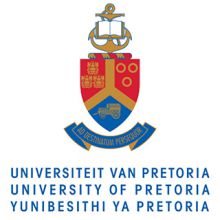Global university rankings endeavour to play a positive role in motivating and recognising excellence.
They pay scant attention, however, to the quality of universities’ engagement with their own communities. How can we ensure that these influential rankings do not devalue one of the fundamental missions of higher education?
Something extraordinary is happening today. Brick by brick, the engaged university is replacing the ivory tower.
A movement in favour of civic engagement is growing rapidly in scale, and is taking off in regions across the world. Faculty are integrating projects designed to address local challenges; professors are applying their research to develop more effective public policies. Universities are developing long-term partnerships with NGOs, public agencies and private businesses, and adopting socially responsible institutional policies and practices.
One indicator of this trend is the growth of the Talloires Network, an international coalition of universities committed to strengthening the civic roles and social responsibilities of higher education. Since its founding a decade ago, it has expanded to 350 higher education institutions in 75 countries, with a combined student enrolment of over 7 million.
Our member institutions are working together to make the engaged university the new gold standard in higher education.
University civic engagement is vitally important—for faculty and students, for communities, and for universities themselves. It offers a unique opportunity to improve teaching through an active, experiential pedagogy that can elevate student learning across the full range of fields. It educates future leaders for change by giving future engineers, physicians, or businesswomen meaningful opportunities to serve while they learn.It can significantly improve conditions in communities, whether by increasing literacy rates or cleaning up the environment. And it builds support for higher education by providing visible evidence that universities are a good public investment.
But the global rankings pay little attention to these activities. In fact, their overwhelming emphasis on research reputation and productivity systematically undercuts other key missions. The result? Unrealistic research aspirations at many universities, and unrealistic research expectations among policy-makers and funding authorities. The cumulative effect is that, worldwide, too many universities direct scarce resources disproportionately toward the kind of research measured by rankings at the expense of their civic, social, and educational missions.
It makes no sense to encourage under-resourced institutions whose primary missions are education and public service to try to be more like Oxford and Harvard. A more balanced, realistic, and productive assessment of university performance requires systematic attention to civic and social engagement.
An essential first step would be to incorporate appropriate indicators of university civic engagement into the overall rankings—measuring, for example, the integration of service projects in curricula, and the quality and extent of community partnerships. More fundamentally, rankings should recognize that institutions differ in their fundamental missions and that a single set of metrics cannot judge all of them equally well.
Colleges and universities whose focus is on education and public engagement should be measured by their performance in these arenas rather than research.
Finally, in addition to improving the rankings, we should develop an international civic engagement classification system. In the United States, the Carnegie community engagement classification has been highly successful, setting a high standard for engagement and determining which institutions meet it.
An international classification along similar lines would do more than reward excellence. It would provide new legitimacy, recognition and visibility. It would promote and support sensible differentiation among academic functions. And it would strengthen accountability, helping institutions to demonstrate that they are addressing the important needs of their communities.
Such an effort would need to take into consideration regional differences and resource constraints. The global rankings already play a very positive role in motivating and recognising excellence. Improved, they could be powerful vehicles for elevating universities’ commitment to the public good.
Anthony Monaco is president of Tufts University in Massachusetts, and Cheryl de la Rey is vice-chancellor and principal of the University of Pretoria. They are chair and vice-chair respectively of the Talloires Network
Professor de la Rey will speak about international universities’ engagement with local communities at the THE World Academic Summit in Melbourne, taking place from 30 September to 2 October.
Register to continue
Why register?
- Registration is free and only takes a moment
- Once registered, you can read 3 articles a month
- Sign up for our newsletter
Subscribe
Or subscribe for unlimited access to:
- Unlimited access to news, views, insights & reviews
- Digital editions
- Digital access to THE’s university and college rankings analysis
Already registered or a current subscriber? Login








